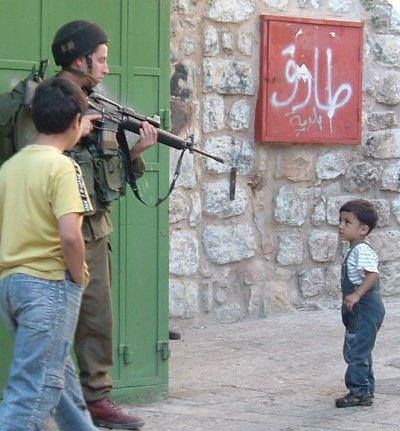The West has argued that the Muslim World should adopt her definition of terrorism and accordingly adjust its worldview, and how it approaches conflict resolution.
The Western definition of terrorism is “violence initiated by non-state actors” and all individuals who take up arms are branded “terrorists” without taking in to consideration the political and ideological context which forced them to take up arms. The Western definition of terrorism is particularly important in the context of colonialism as the West controls all state actors in the Muslim World and hence “violence by state actors” in the Muslim World is effectively at Western disposal. So violence by “non-state actors” is actually violence which is likely to be out of Western influence and hence a threat to Western interests.
The West argues that political agitation without resorting to violence is the main route which should be adopted by resistance movements across the Muslim World. This suggestion is flawed for a number of reasons. First, the majority of conflicts in the Muslim World are the direct result of a country using violence or force to occupy Muslim lands. The Indian occupation of Kashmir, the American occupation of Afghanistan and the Zionist occupation of Palestine are flash points in the Muslim World because Muslims were oppressed through use of force. The state suppression of Rohingya Muslims in Burma and the brutal and murderous response of the Bashar regime in response to Arab Spring protests have resulted in conflicts shaped exclusively by use of violence by the State. Conflicts resulting from unjust use of force are seldom solved by political activism.
Second political activism as a style in itself doesn’t have the capability to implement what it demands. Political activism is the society’s way of conveying its viewpoint to the people of power and authority. To convince them that they must change course and implement what the society demands. Human societies are organized in a hierarchical manner where authority is not exercised by the society as a whole but rather through an authority called the state. So political activism is always aimed towards the people of power, those who have the power (military, economic, political) to implement what is demanded. In societies such as Kashmir, because the authority is seen as illegitimate and foreign and not approved by the society, there is no choice but to remove the authority through use of violence even if it is by non-state actors.
There is of course the issue of practicality. A foreign power or authority may well be too powerful for non-state actors in places like Kashmir to remove it by their meager means. Islam solves this problem by placing this burden on the people of power. Islam does not recognize boundaries, neither does it recognize the current so called international law and institutions. As the people of power in Kashmir are non-Muslim occupiers, it falls upon the Muslim people of power in Pakistan, its armed forces, to remove the foreign occupation in Kashmir. In fact in the Islamic conception of the state, the Khilafah, the Khaleefah is bound by an Islamic obligation to help all oppressed Muslims around the globe.
وَمَا لَكُمْ لاَ تُقَاتِلُونَ فِى سَبِيلِ ٱللَّهِ وَٱلْمُسْتَضْعَفِينَ مِنَ ٱلرِّجَالِ وَٱلنِّسَآءِ وَٱلْوِلْدَانِ ٱلَّذِينَ يَقُولُونَ رَبَّنَآ أَخْرِجْنَا مِنْ هَـٰذِهِ ٱلْقَرْيَةِ ٱلظَّالِمِ أَهْلُهَا وَٱجْعَلْ لَّنَا مِن لَّدُنْكَ وَلِيّاً وَٱجْعَلْ لَّنَا مِن لَّدُنْكَ نَصِيراً
“And what is wrong with you that you fight not in the Cause of Allah, and for those weak, ill-treated and oppressed among men, women, and children, whose cry is: “Our Lord! Rescue us from this town whose people are oppressors; and raise for us from You one who will protect, and raise for us from You one who will help.”
(An Nisa: 75)
Engineer Moez – Pakistan

